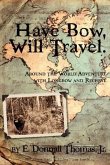The text progresses logically through three main sections, beginning with cutting-edge detection technologies like ground-penetrating radar and marine sonar systems. It then delves into documented treasure discoveries worldwide, from Spanish galleons to Asian temples, before concluding with practical modern applications and legal frameworks. Throughout the narrative, readers gain insights into remarkable technological advances, such as how modern metallurgy aids in artifact dating and how oceanographic studies inform underwater recovery techniques.
What sets this book apart is its interdisciplinary approach, combining elements of marine archaeology, cultural anthropology, and materials science. Rather than simply recounting famous discoveries, it provides readers with actionable knowledge about research methodology, site documentation, and artifact preservation. The integration of primary sources, including ship manifests and expedition logs, alongside interviews with professional salvage operators, offers an authoritative perspective on this exciting field while maintaining scientific rigor and ethical awareness.
Dieser Download kann aus rechtlichen Gründen nur mit Rechnungsadresse in A, B, BG, CY, CZ, D, DK, EW, E, FIN, F, GR, H, IRL, I, LT, L, LR, M, NL, PL, P, R, S, SLO, SK ausgeliefert werden.









